- Home
- Michael Shaara
The Killer Angels: The Classic Novel of the Civil War Page 12
The Killer Angels: The Classic Novel of the Civil War Read online
Page 12
Here was Powell Hill, looking worse. He said, “The men have done all they can do. Heth’s division is exhausted. Pender says he has had the hardest fighting of the war.”
Lee studied him, looked away, back to the hill above Gettysburg. Hill may be sick but Pender was trustworthy. If Pender had doubts …
Taylor arrived. “General Ewell is with General Early, sir. We are in communication.”
“Good,” Lee said. “Deliver this message in person. Tell General Ewell the Federal troops are retreating in confusion. It is only necessary to push those people to get possession of those heights. Of course, I do not know his situation, and I do not want him to engage a superior force, but I do want him to take that hill, if he thinks practicable, as soon as possible. Remind him that Longstreet is not yet up.”
Taylor repeated the message, rode off. Beyond that hill Lee could begin to feel the weight of the Union Army, the massive blue force pouring his way. What kind of a soldier would Meade turn out to be? We must not give him the high ground. Lee looked southeast, saw two rounded hills. We might swing around that way. They have marched quicker than I expected. Thank the Lord for Longstreet’s spy.
He heard more cheering, to the rear, looked, saw Longstreet. Moving forward slowly, calmly, like a black rock, grinning hungrily through the black beard. Lee flushed with pleasure. Longstreet dismounted, extended a hand.
“Congratulations, General. Wish I could have been here.”
Lee took the hand warmly. “Come here, I want you to see this.” He waved toward the field ahead, the hill beyond Gettysburg.
An officer near him said, “General Lee, it’s Second Manassas all over again!”
“Not quite,” Lee said cheerily, “not quite.” He was delighted to have Longstreet here. Now through the streets Johnson’s division was moving, Longstreet’s people could not be far behind. With every step of a soldier, with every tick of the clock, the army was gaining safety, closer to victory, closer to the dream of independence.
Longstreet studied the field. After a moment he said, “We were lucky.”
“It couldn’t have worked better if we had planned it.”
Longstreet nodded. Lee explained the position that Ewell had orders to move to the left and take that hill. Longstreet studied the hill* while Lee spoke. After a moment he said, “Fine. But this is fine. This is almost perfect.” He turned to Lee. “They’re right where we want them. All we have to do is swing around that way—” he pointed toward Washington “—and get between them and Lincoln and find some good high ground, and they’ll have to hit us, they’ll have to, and we’ll have them, General, we’ll have them!”
His eyes were flashing; he was as excited as Lee had ever seen him. Lee said, amazed, “You mean you want me to disengage?”
“Of course.” Longstreet seemed surprised. “You certainly don’t mean—Sir, I have been under the impression that it would be our strategy to conduct a defensive campaign, wherever possible, in order to keep this army intact.”
“Granted. But the situation has changed.”
“In what way?”
“We cannot disengage. We have already pushed them back. How can we move off in the face of the enemy?”
Longstreet pointed. “Very simply. Around to the right. He will occupy those heights and wait to see what we are going to do. He always has. Meade is new to the command. He will not move quickly.”
Lee put his hand to his face. He looked toward the hill and saw the broken Union corps falling back up the slope. He felt only one urge: to press on and get it done. He said nothing, turning away. There was a messenger from General Ewell. Lee recognized the man, Captain James Power Smith, Ewell’s aide. The captain was delighted to see the Commanding General.
Ewell’s message was cautious: “General Ewell says he will direct Early and Rodes to move forward, but he requests support of General Hill on his right. He says that there is a strong Union position south of the town which should be taken at once.”
Lee asked which position Ewell meant. He handed Smith the glasses. Smith said the position was beyond the one in front, at the top of which there was a cemetery.
Lee looked at his watch. It was almost five o’clock. Still two hours of daylight. He said to Longstreet, “General, how far away is your lead division?”
“McLaws. About six miles. He is beyond Johnson’s train of wagons.”
Lee shook his head. To Smith he said, “I have no force to attack the hill. General Hill’s corps has had hard fighting. Tell General Ewell to take that hill if at all possible. Have you seen Major Taylor?”
“No, sir.”
“You must just have passed him.”
Lee sent Smith away. He remembered: he had ordered artillery to fire on the hill, but none was firing. He sent to find out why. He began to realize he was really very tired. But if a strong Union force was on a hill to the south … but without Longstreet’s corps a general assault was impossible. Where was the artillery? Where was Hill? Why had Early and Rodes stopped their attacks? He could see the town below choked with soldiers, horses, but there was no advance.
He turned, saw Longstreet watching him. He had the look of a man surpressing his thoughts. Lee said, “Say it, General.”
“We shouldn’t have attacked here, General. Heth had his orders.”
Lee waved a hand. “I know that. But we have pushed them back.”
“In the morning we will be outnumbered.”
Lee shrugged. Numbers were meaningless. “Had I paid attention to numbers, General …” Lee left the rest unsaid.
Longstreet said, “If we moved south, toward Washington, we could fight on ground of our choosing.”
“The enemy is here, General. We did not want the fight, but the fight is here. What if I ask this army to retreat?”
“They will do as you order.”
Lee shook his head again. He was growing weary of this. Why didn’t Ewell’s assault begin? A cautious commander, new to his command. And A. P. Hill is sick. Yet we won. The soldiers won. Lee pointed toward the hill.
“They will probably retreat. Or Ewell will push them off. But if Meade is there tomorrow, I will attack him.”
“If Meade is there,” Longstreet said implacably, “it is because he wants you to attack him.”
That was enough. Lee thought: Docile men do not make good soldiers. He said nothing. Longstreet could see the conversation was at an end. He said, “I’ll bring my boys up as soon as I can.”
Lee nodded. As Longstreet was going, Lee said, “General.”
“Yes, sir?”
“Your spy was correct in his reports. Had it not been for that report, this army might have been destroyed in detail. I thank you.”
Longstreet nodded. If the compliment pleased him, he did not show it. He moved off.
Lee stood alone, troubled. He had had enough of defensive war. The King of Spades. Let us attack, and let it be done. I am extraordinarily tired. You are an old man. And if something happens to you?
He picked up the glasses, waiting for Ewell’s attack. No attack began.
*Cemetery Hill.
4.
CHAMBERLAIN
Chamberlain rode slowly forward, into the western sun. It was soft green country, a land of orchards and good big barns. Here and there along the road people came out to see the troops go by and there were a few cheers, but most of the people were silent and glum, not hostile, apprehensive. The sight was depressing. Some of them were selling food to the troops. One farmer had a stand offering cold milk for sale, at outrageous prices, and after Chamberlain was past there was a scuffle and some of the men requisitioned the milk and told him to charge it to the U.S. Guvmint. Chamberlain heard but did not look back. It was beginning to be very hot, and Chamberlain closed his eyes to let the salt sweat gather in the corners of his eyelids and wiped it away and rode with his eyes closed, himself tucked away back in the dark under his hat. When he opened his eyes again the day was violently bright and very dusty, and so
he rode half asleep, eyes partly closed, dreaming.
At noon they reached the Pennsylvania border. Now there were more people and they were much more friendly and the band behind struck up “Yankee Doodle.” Now the farmers began to hand out free food; Chamberlain smelled fresh bread baking. A very pretty young girl with long blond hair rushed up to him and pressed a warm cake into his hand and he was embarrassed. The regiment greeted the girl with cheers. It was good to be first in line. No dust ahead. Chamberlain swiveled in the saddle and looked back down the road, and there down in the dust like a huge blue snake came the whole Fifth Corps along the winding road, some men on horses riding high in black hats, among the tilting flags. More bands were playing. Chamberlain wiped sweat from his eyes.
It was time to dismount. A good officer rode as little as possible. He got down from the horse and began to march along in the dust, in the heat. Near him he could hear Tom Chamberlain talking to one of the new men from the Second Maine, explaining the ways of this regiment. Tom was proud but not too proud. The Second Maine had seen more action. Chamberlain thought of Tom and his mind wandered back to Maine: young Tom lost, in the dark of the winter, a long search, Mother crying, we never found him, he survived out there and came back himself, a grinning kid with a bright red nose, never once afraid …
“One of the things you get to know,” Tom Chamberlain was saying, “is that this here brigade has got its own special bugle call. You ever hear tell of Dan Butterfield?”
“General Butterfield what was with Hooker?”
“Right. Same man. Well, he used to be our brigade commander.”
“They say he was a pistol. No man like him for having a good time.” He gave a lewd wink, suggestion of coarseness.
“Well, I don’t know about that, but he liked to write bugle calls. Trouble with this army is too many bugle calls. Call for artillery and infantry and get up and eat and retreat and all that, and it got a mite confusin’, so Ole Dan Butterfield wrote a call for this here brigade, special. If there is an order for this brigade, well, somebody else would be blowing his blame bugle and we’d think it was for us only it wasn’t, but we would follow the order anyway, and next thing you know we’d be in trouble.”
“That happened to us once,” the Maine man said. “Half the regiment charged and the other half retreated. You had your choice.” He chuckled. “Seems a good system, come to think of it.”
“Well, in this brigade we got a special call. You hear that call and you know the next call is for you. Goes like this:
“We call it ‘Dan Butterfield,’ just like this: ‘Dan, Dan, Dan, Butterfield, Butterfield.’ ”
The Maine man said glumly, “In the middle of a fight I’m supposed to remember that?”
“It’s easy if you remember.” He sang it again: “Dan, Dan, Dan, Butterfield, Butterfield.”
“Um,” the Maine man said.
“Ole Butterfield wrote a lot of bugle calls. You know ‘Butterfield’s Lullaby’?”
“Butterfield’s what?”
Tom hummed a few bars of what was still known as “Butterfield’s Lullaby” but which the army would later know as “Taps” and which now had no connotation of death, which simply meant rest for the night, rest after a long day in the dust and the sun, with the bugles blaring, and Joshua Chamberlain, listening, thought of the sound of “Butterfield’s Lullaby” coming out of the dark, through a tent flap, with the campfires burning warm and red in the night, and Chamberlain thought: you can grow to love it.
Amazing. Chamberlain let his eyes close down to the slits, retreating within himself. He had learned that you could sleep on your feet on the long marches. You set your feet to going and after a while they went by themselves and you sort of turned your attention away and your feet went on walking painlessly, almost without feeling, and gradually you closed down your eyes so that all you could see were the heels of the man in front of you, one heel, other heel, one heel, other heel, and so you moved on dreamily in the heat and the dust, closing your eyes against the sweat, head down and gradually darkening, so you actually slept with the sight of the heels in front of you, one heel, other heel, and often when the man in front of you stopped you bumped into him. There were no heels today, but there was the horse he led by the reins. He did not know the name of this horse. He did not bother any more; the horses were all dead too soon. Yet you learn to love it.
Isn’t that amazing? Long marches and no rest, up very early in the morning and asleep late in the rain, and there’s a marvelous excitement to it, a joy to wake in the morning and feel the army all around you and see the campfires in the morning and smell the coffee …
… awake all night in front of Fredericksburg. We attacked in the afternoon, just at dusk, and the stone wall was aflame from one end to the other, too much smoke, couldn’t see, the attack failed, couldn’t withdraw, lay there all night in the dark, in the cold among the wounded and dying. Piled-up bodies in front of you to catch the bullets, using the dead for a shield; remember the sound? Of bullets in dead bodies? Like a shot into a rotten leg, a wet thick leg. All a man is: wet leg of blood. Remember the flap of a torn curtain in a blasted window, fragment whispering in that awful breeze: never, forever, never, forever.
You have a professor’s mind. But that is the way it sounded.
Never. Forever.
Love that too?
Not love it. Not quite. And yet, I was never so alive.
Maine … is silent and cold.
Maine in the winter: air is darker, the sky is a deeper dark. A darkness comes with winter that these Southern people don’t know. Snow falls so much earlier and in the winter you can walk in a snowfield among bushes, and visitors don’t know that the bushes are the tops of tall pines, and you’re standing in thirty feet of snow. Visitors. Once long ago visitors in the dead of winter: a preacher preaching hell-fire. Scared the fool out of me. And I resented it and Pa said I was right.
Pa.
When he thought of the old man he could see him suddenly in a field in the spring, trying to move a gray boulder. He always knew instinctively the ones you could move, even though the greater part was buried in the earth, and he expected you to move the rock and not discuss it. A hard and silent man, an honest man, a noble man. Little humor but sometimes the door opened and you saw the warmth within a long way off, a certain sadness, a slow, remote, unfathomable quality as if the man wanted to be closer to the world but did not know how. Once Chamberlain had a speech memorized from Shakespeare and gave it proudly, the old man listening but not looking, and Chamberlain remembered it still: “What a piece of work is man … in action how like an angel!” And the old man, grinning, had scratched his head and then said stiffly, “Well, boy, if he’s an angel, he’s sure a murderin’ angel.” And Chamberlain had gone on to school to make an oration on the subject: Man, the Killer Angel. And when the old man heard about it he was very proud, and Chamberlain felt very good remembering it. The old man was proud of his son, the colonel. Of infantry. What would he have thought of the speech this morning? Home and Mother. Mother wanted me to be a parson. Vincent picked me, me, to lead the regiment. Folks back home will know by now. Commander of the regiment. Why me? What did Vincent see?
He turned his mind away from that. Think on it when the time comes. You think too much beforehand and you get too self-conscious and tight and you don’t function well. He knew that he was an instinctive man, not a planner, and he did best when he fell back on instinct. Think of music now and singing. Pass the time with a bit of harmony. Hum songs, and rest.
But it was very hot.
Could use some Maine cool now.
Home. One place is just like another, really. Maybe not. But truth is it’s all just rock and dirt and people are roughly the same. I was born up there but I’m no stranger here. Have always felt at home everywhere, even in Virginia, where they hate me. Everywhere you go there’s nothing but the same rock and dirt and houses and people and deer and birds. They give it all names, but I’m
at home everywhere. Odd thing: unpatriotic. I was at home in England. I would be at home in the desert. In Afghanistan or far Typee. All mine, it all belongs to me. My world.
Tom Chamberlain was saying, “You should have seen the last commander, Old Ames. He was the worst, I mean to tell you, the triple-toed, half-wound, spotted mule worst.”
“Where was you boys at Chancellorsville?”
“Well now.” A painful subject. Joshua Chamberlain opened his eyes.
“The fact is,” Tom said gloomily, “we was not engaged.”
“Well now, a lot us wa’n’t engaged. That there Hooker, I hear he froze right up like a pond in the dark.”
“Well, we had us a misfortune.” Tom turned eyes sad as a trout. He was a lean, happy, excitable man who had turned out to be calm and serene in combat. Soldiering was beginning to intrigue him.
“The thing was, damn, we had these here ’noculations. You ever been ’noculated?”
The man swore earnestly. Tom nodded. “Well, then, you know. Only thing was, we wound up sick, half the dang regiment. And come time for the fight at Chancellorsville our surgeon major—that’s a stumble-fingered man named Wormy Monroe—he up and reported us unfit for combat. So they went ahead and sent us back to mind the dang telegraph wires. We wasn’t allowed to ’sociate with nobody. Old Lawrence there he went on up and argued, but wouldn’t nobody come near us. It was like he was carrying the plague. Lawrence said hang it, we ought to be the first ones in, we’d probably give the Rebs a disease and be more useful than any other outfit in the whole army. Matter of fact, way things turned, we probably would’ve been more use than most of them people. Anyway we wasn’t in it.”
The Maine man was chuckling. Chamberlain thought: would have thought mountain men were tougher than city boys. But mountain men get all the diseases. City boys get immune as they grow up. We were a thousand strong when we left Maine.

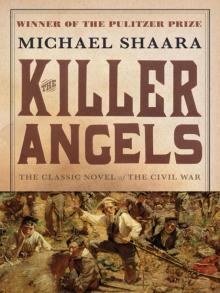 The Killer Angels: The Classic Novel of the Civil War
The Killer Angels: The Classic Novel of the Civil War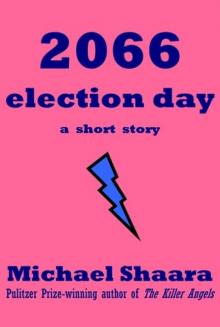 2066 Election Day
2066 Election Day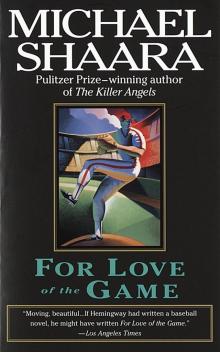 For Love of the Game
For Love of the Game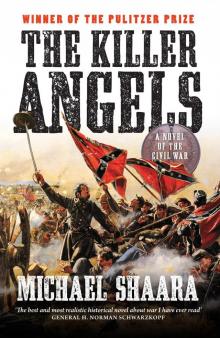 The Book
The Book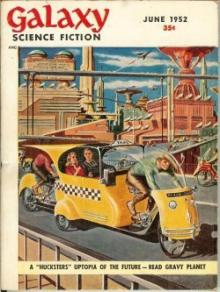 Galaxy
Galaxy Conquest Over Time
Conquest Over Time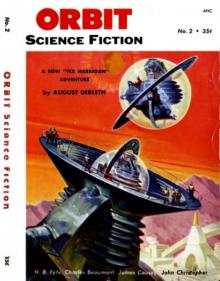 Potential Enemy
Potential Enemy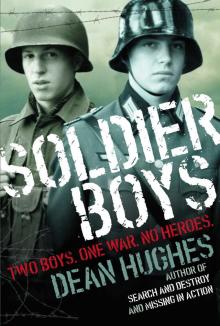 Soldier Boy
Soldier Boy Wainer
Wainer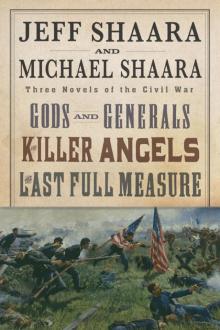 The Civil War Trilogy: Gods and Generals / the Killer Angels / the Last Full Measure
The Civil War Trilogy: Gods and Generals / the Killer Angels / the Last Full Measure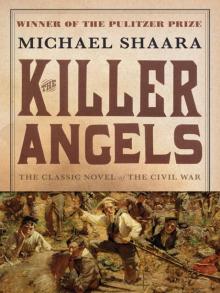 The Killer Angels
The Killer Angels